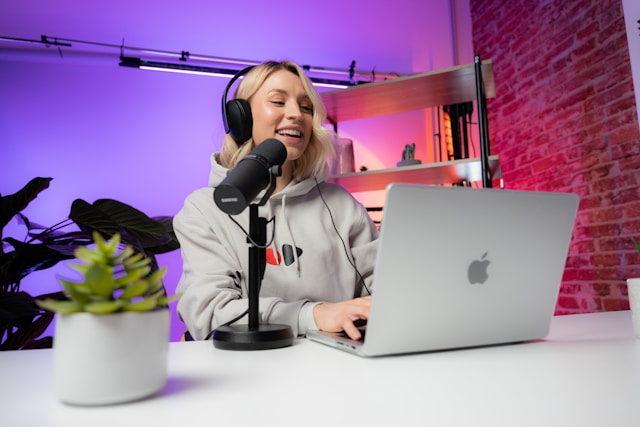Estimate reading time: 3:26
In the world of podcasting, sound is everything. Engaging content, compelling storytelling, and captivating conversations are essential, but without the right music to accompany them, a podcast can fall flat. Whether you're looking to add ambiance, set the mood, or simply enhance your listeners' experience, incorporating music into your podcast can make a significant difference. However, it's crucial to use music legally and ethically to avoid copyright issues. This is where royalty-free music comes into play.
Royalty-free music refers to tracks that can be used without the need to pay royalties or licensing fees for each use. This type of music is an excellent choice for podcasters because it provides a cost-effective way to access high-quality music while ensuring compliance with copyright laws. But where can you find royalty-free music for your podcast? Let's explore some of the best sources:
- Trouble recording clean audio for your podcast?
Learn how to Eliminate Breath and Swallow Sounds When Recording Your Podcast
Royalty-Free Music Libraries
GrooveDen.com offers a vast selection of high-quality music tracks specifically curated for content creators. With a simple licensing structure, you can use their music in your podcasts without worrying about additional fees.
Known for its extensive music library and user-friendly interface,
GrooveDen.com provides podcasters with a wide range of tracks suitable for various genres and moods.
Furthermore, they offer a diverse collection of royalty-free music tracks, ranging from cinematic scores to upbeat tunes, perfect for adding flair to your podcasts.
Creative Commons Licensed Music

Creative commons license is also anothe great option for sourcing royalty-free music for your podcast.
A Creative Commons license is a type of copyright license that allows creators to grant certain permissions to others regarding the use of their work, while still retaining some rights. In the context of music, a Creative Commons license enables musicians to share their compositions with the public under specific terms and conditions, which can vary depending on the type of license chosen.
There are several types of Creative Commons licenses, each with its own set of permissions and restrictions. Some common elements of these licenses include:
1. Attribution (BY): This license allows others to distribute, remix, adapt, and build upon the work, even commercially, as long as they give appropriate credit to the original creator.
2. Non-Commercial (NC): This license permits others to remix, adapt, and build upon the work for non-commercial purposes only. Any commercial use of the work requires explicit permission from the original creator.
3. No Derivatives (ND): This license allows others to redistribute the work, but they cannot remix, adapt, or modify it in any way. The work must be used and shared as-is.
4. ShareAlike (SA): This license permits others to remix, adapt, and build upon the work, even for commercial purposes, as long as they distribute the resulting work under the same or compatible license as the original.
By using a Creative Commons license, musicians can make their music more accessible to others while still protecting their intellectual property rights. It provides a flexible framework for sharing and collaborating on creative projects, fostering a culture of openness and innovation in the music industry.
Public Domain Music
Public domain music refers to compositions whose copyrights have expired or have been forfeited. Websites like **Musopen** and **Public Domain 4U** offer a treasure trove of classical music and traditional tunes that can be used freely in podcasts.
When selecting music for your podcast, consider the mood, tone, and overall theme of your content. Experiment with different tracks to find the perfect fit for each episode. Additionally, always review the licensing terms and conditions of the music you intend to use to ensure compliance and avoid any legal issues down the line.
In conclusion, incorporating royalty-free music into your podcast can elevate the listening experience for your audience while ensuring that you adhere to copyright regulations. With numerous platforms offering a wide selection of tracks across various genres, finding the perfect music for your podcast has never been easier. So, explore these resources, unleash your creativity, and take your podcast to new heights with the power of music.



